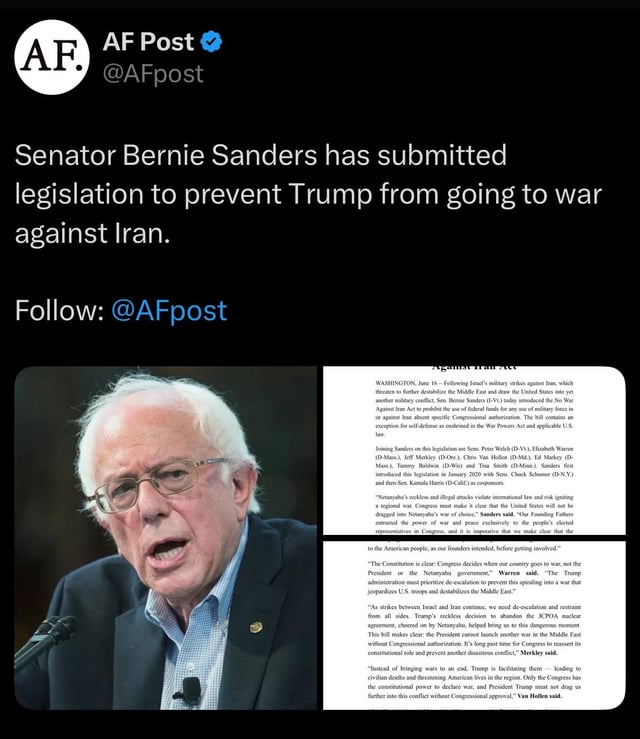Warren and Markey Support No War Against Iran Act Amidst Rising Tensions
A dialogue took place in 2018 between U.S. Senators Elizabeth Warren and Ed Markey amidst the rising tensions between Israel and Iran. Both Warren and Markey are lending their support to a bill that aims to prevent the U.S from getting engaged in the conflict without approval from Congress. This legislative initiative comes at a time when the stance of the Trump administration regarding U.S. involvement in this potential conflict is uncertain.
President Trump built his campaign on the pledge of reducing U.S.’s military engagement in foreign wars. However, he has not explicitly rejected the possibility of the U.S. joining Israel in its mission to dismantle Iran’s nuclear potential. This development brings to light the potential for the U.S. to once again become embroiled in a significant Middle East conflict.
When questioned about this matter at a White House press conference on Wednesday, Trump’s response was ambiguous. He gave no clear indication of his intentions, leaving everyone wondering about the U.S.’s future actions. The decision to join Israel or abstain from the conflict remains uncertain.
Meanwhile, several Democrat Senators, including Warren, Markey, and Bernie Sanders of Vermont are taking legislative action. They have introduced the ‘No War Against Iran Act’, a bill that seeks to clarify the rules of U.S. engagement in potential conflicts. The bill stipulates that federal funds cannot be used for military action against Iran without express authorization from Congress.
Warren issued a statement emphasizing that the U.S. Constitution firmly places the decision to go to war in the hands of Congress. She argued that neither the President nor any foreign government, including Israel led by Prime Minister Netanyahu, should dictate this decision. This statement highlights the significance of the proposed Act in promoting democratic processes.
Markey also issued a statement reiterating the need for Congress to regain its lawful decision-making power. He expressed concern over the potential for the U.S. to be pulled into a ‘catastrophic regional war’. He pointed out that such an event could risk the safety of American citizens and the armed forces, destabilize the Middle East, and put innocent lives at risk.
Senator Sanders accused Netanyahu of escalating the conflict through ‘reckless and illegal attacks’ against Iran. He stated that these actions are a clear breach of international law and could potentially ignite a regional war. This perspective draws attention to the role of individual nation states in fueling conflicts and undermining regional stability.
Another resolution mirroring the ‘No War Against Iran Act’ surfaced on Monday from U.S. Senator Tim Kaine of Virginia. This proposal also focuses on the direct action of the U.S. armed forces, stating that such action against Iran must not be taken unless explicitly authorized by Congress or through a formal declaration of war.
Both legislative proposals currently face considerable opposition in Congress, where the majority of power is held by Republicans. The fate of these resolutions is uncertain without bipartisan support. As of now, no Republicans have publicly expressed their support for these measures.
These legislative initiatives reflect the ongoing tension between Congress and the White House regarding the power to declare war. The disagreements underscore the complexities of the distribution of power within a democratic system and the challenges involved in maintaining checks and balances on executive authority in matters of international concern.

